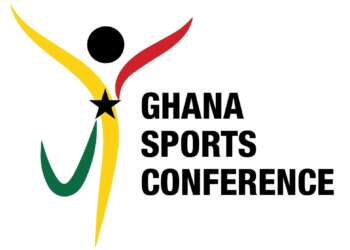Akwasi Frimpong prays to make it through all the heats over a two day period and hopefully win Ghana and Africa’s first medal in the men’s edition of the sport of skeleton as a competitor from tropical Ghana at the 2018 Winter Olympics.
On Thursday, Feb 15, the first two heats in men’s skeleton starts at the Winter Olympic Games of PyeongChang in South Korea. The following day will see the third heats for men and also decide the world champions in the fourth and final heat.
Akwasi Frimpong is Ghana’s sole representative at this year’s games which will see Ghana make her second appearance at the Winter Olympics. Ghana was first represented at the Winter Olympics in 2010, missed the 2014 games and bounced back in 2018 with Frimpong.
Frimpong told TheAfricanDreama.net that “I want my example to motivate kids in Ghana and elsewhere in an attempt to get them out of their comfort zone to show them that it can be done because I did it. After the Olympics I will work more with Ghana’s sports authorities and the countries Bobsled and Skeleton Federation to raise potential skeleton atheletes for these sports for future Winter Olympics.”
Winter Olympics journey of Akwasi Frimpong
Akwasi Frimpong earned Africa’s sole male continental representation in skeleton by rising up the International Bobsleigh and Skeleton Federation (IBSF) rankings.
He started out ranked as 104 in the world and moved to 99th best, rose up to 80th, then made a dramatic leap to become world number 55 to qualify for PyeongChang. Skeleton as a non-contact sport derives its name from the bony appearance of the sled used by riders.
[More Africa sports-related stories]
Akwasi Frimpong is not the first Ghanaian at the Winter Olympics. 8 years before Frimpong, Kwame Nkrumah-Acheampong, nicknamed “The Snow Leopard“, first represented Ghana at the Winter Olympics as a skier competing in the Slalom ski event during the 2010 Vancouver games in Canada.
Though Frimpong was born in Ghana, he relocated to the Netherlands when he turned 8 where he, later on, enjoyed a successful career as a track and field athlete which was cut short by an injury. Because he badly wanted to be an Olympian he relocated again, this time to the US after winning an athletic scholarship to study at Utah Valley University in 2008.
Doing it for an entire continent — Africa
“In 2015 I again set my eye on rekindling the Olympic ambition I have had for years, this time with a new sport — skeleton. I feel this timing is just perfect because now I not only get to the Winter Olympics, but thanks to God I also get to represent Ghana and the entire continent of Africa which is a huge responsibility. The job is not yet done though, we must fly high the flag of Africa in South Korea“, said Frimpong to TheAfricanDreams.net
Simidele Adeagbo of Nigeria will join Frimpong to represent Africa in PyeongChang, she will compete as a female skeleton athlete. Adeagbo will also be making history as the first African female skeleton athlete and Nigerian Winter Olympian.
Skeleton is a winter sliding sport in which a person rides a small sled, known as a skeleton bobsled (or -sleigh) down a frozen track while lying face down and looking forward through a helmet. The difference between skeleton and other winter sliding sports is that it always has only one rider.
Skeleton champions at Winter Olympics
Skeleton was fully incorporated into the Winter Olympics program during the 2002 Winter Olympics in Salt Lake City, Utah, in the United States. At this time both men and women were allowed to compete. The sport made its first appearances in 1928 and 1948 respectively in Moritz Switzerland during those year’s the Olympics.
The United States (US) is atop the Winter Olympics all-time standings medal table for skeleton with a total of 8 medals representing the most Olympic medals won in skeleton. 3 of the US medals are gold, 4 silvers, and a bronze.
Great Britain follows with 6 medals in the forms of 2 golds, a silver, and three bronzes while Canada is the global number 3 with four medals comprising of two golds, a silver, and a bronze respectively.
Switzerland, Germany, Italy, and Russia follow in that respective order with Ghana’s Frimpong and Nigeria’s Adeagbo looking to clinch Africa’s first medals on the skeleton medals table at PyeongChang 2018.
















